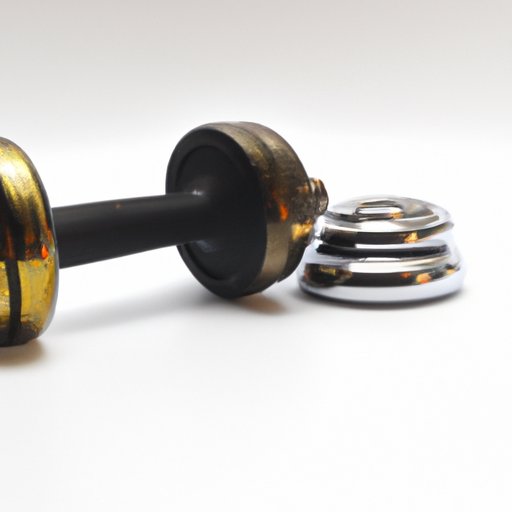Introduction
Being out of shape means having little or no physical fitness. It can be caused by a variety of factors like a sedentary lifestyle, aging, or illness. It can also be due to a lack of knowledge about the types of exercises that are best suited for one’s body type. No matter the cause, starting to exercise when you’re out of shape can be daunting.
The good news is that there are many benefits to starting to exercise. Regular physical activity helps to boost energy levels, improve mental health, reduce stress, and enhance overall wellbeing. It can also help to reduce the risk of chronic diseases such as heart disease, stroke, diabetes, and some forms of cancer.
Start With Low-Impact Exercise
When starting to exercise when you’re out of shape, it’s important to start slow and gradually increase the intensity of your workouts. Low-impact exercises such as walking or swimming are great for beginners because they don’t put too much strain on the body. Other examples of low-impact exercises include yoga, cycling, and Tai Chi.
It’s also important to listen to your body and take breaks when needed. Don’t push yourself too hard and remember to stay hydrated. Starting with shorter sessions of light exercise and slowly building up endurance is key.
Set Realistic Goals
In order to stay motivated and make progress, it’s important to set realistic goals. This could be anything from walking for 10 minutes a day to running a 5K. Whatever your goal is, make sure it’s attainable and measurable. It’s also important to celebrate small successes along the way. Achieving smaller goals will help to keep you motivated and focused on the bigger picture.
“Setting realistic goals is an important step in making any new habit stick,” says Dr. Jennifer Caudle, family physician and assistant professor at Rowan University School of Osteopathic Medicine. “It allows you to measure your progress over time and gives you a sense of accomplishment as you reach each milestone.”
Schedule Regular Sessions
Scheduling regular sessions of light exercise is also important for staying motivated and making progress. Setting aside a specific time each day to exercise will help to ensure that you actually do it. If you struggle to find the time or motivation to exercise, try to find something that you enjoy doing, such as dancing or playing a sport. This will make it more enjoyable and easier to stick to.
It’s also important to remember that you don’t have to do intense workouts every day. Taking a few days off each week to rest and recover is just as important. This will help to prevent injuries and burnout.
Find an Exercise Buddy
Having an exercise buddy can be beneficial in many ways. Having someone to motivate and support you can help to keep you on track and make exercising more fun. Plus, having an exercise buddy makes it easier to stay accountable and less likely to skip workouts. Sources for finding a reliable exercise buddy include friends, family, coworkers, or online resources.
“Having an exercise buddy can be a great motivator and help to keep you accountable,” says Dr. Caudle. “Plus, it’s a lot more fun to exercise with someone else.”
Incorporate Strength Training
Strength training is an important component of any exercise program. Incorporating strength training exercises such as squats, lunges, and push-ups can help to build muscle and improve overall health. These exercises can be done with or without weights and can be tailored to fit your individual needs and abilities.
Regular strength training can help to improve bone density, balance, and coordination. It can also help to reduce body fat, improve posture, and increase energy levels.
Monitor Progress and Adjust Program
It’s important to track your progress and adjust your program accordingly. This will help to ensure that you are making progress and also allow you to modify your program if needed. Tracking tools such as fitness apps, journaling, or pedometers can be used to monitor progress.
If you are not seeing results, it may be time to switch up your routine. Try different types of exercises or increase the intensity. It’s also important to remember that progress takes time and consistency is key.
Reward Yourself
Rewarding yourself for hard work is a great way to stay motivated and celebrate progress. Ideas for rewarding yourself include buying new workout gear, taking a spa day, or treating yourself to a special meal. Whatever it is, make sure it’s something that you will enjoy and look forward to.
“Rewards can be a great way to stay motivated and keep working towards your goals,” says Dr. Caudle. “Just make sure to pick something that you really want and will actually enjoy.”
Conclusion
Starting to exercise when you’re out of shape can be intimidating, but it doesn’t have to be. With the right approach and plenty of patience and dedication, you can achieve your fitness goals. Remember to start with low-impact exercises, set realistic goals, schedule regular sessions, find an exercise buddy, incorporate strength training, monitor progress, and reward yourself for hard work.
(Note: Is this article not meeting your expectations? Do you have knowledge or insights to share? Unlock new opportunities and expand your reach by joining our authors team. Click Registration to join us and share your expertise with our readers.)
